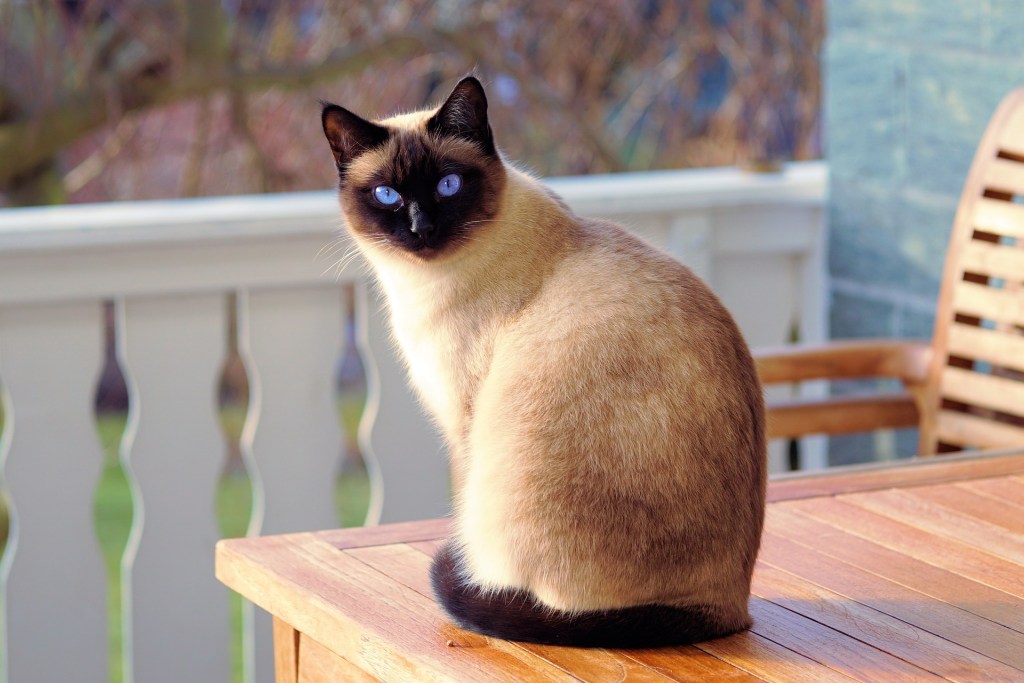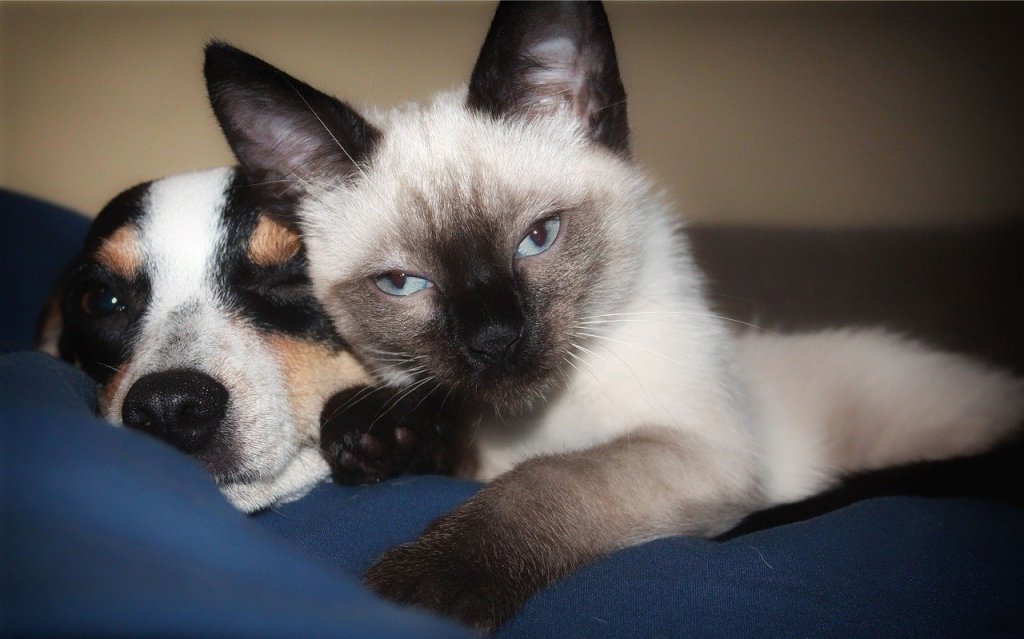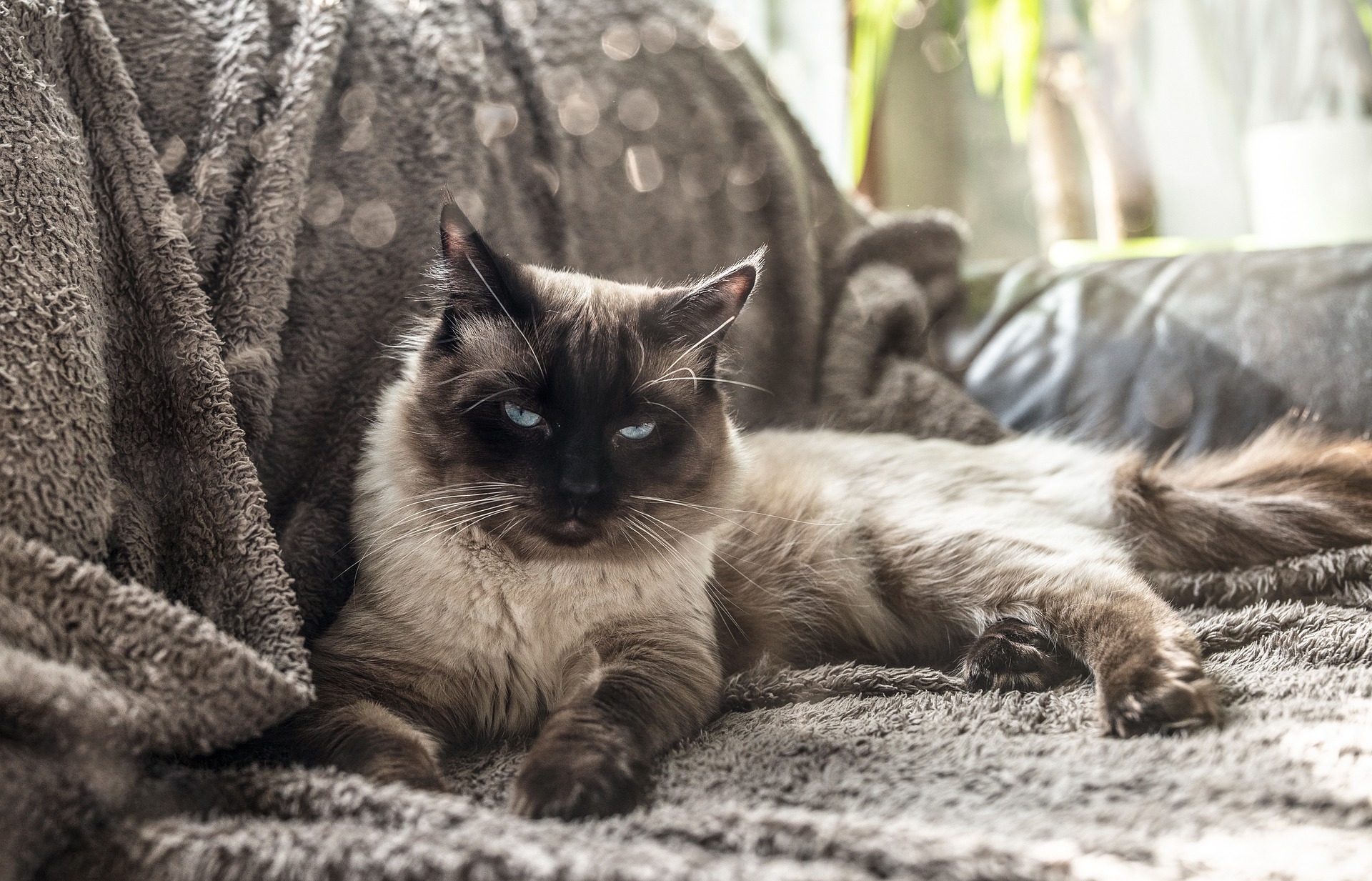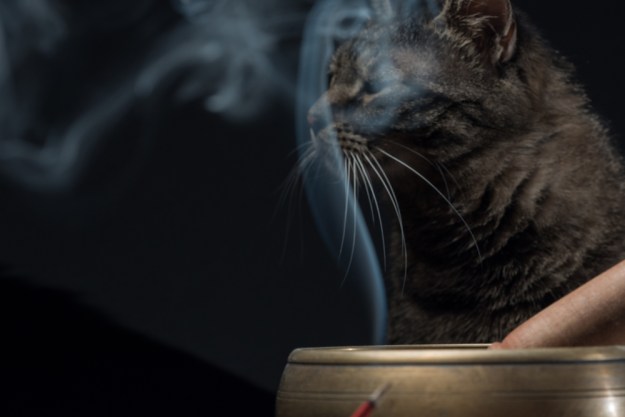Whether you’re adopting your first lovely Siamese cat into your home or want to take better care of the one(s) you already have, awareness of frequent health issues among Siamese cats is a tremendous help. Certain breeds, including the Siamese, are predisposed to developing particular health problems.
When you’re aware of the increased chance of your cat developing one of these conditions, you can watch for their usual symptoms and get your cat health care quickly if something does happen. While many Siamese cats are very healthy, it’s a good idea to keep an eye out for the following health troubles.

What are some common health issues of Siamese cats?
According to Harligen Veterinary Clinic, Siamese cats are prone to many health issues. Like any cat breed, Siamese cats can become obese, which can lead to health issues like arthritis. Your Siamese may also develop dental disease, which involves infection in the gums and roots of your cat’s teeth. Brushing your cat’s teeth may help to prevent this.
Siamese cats are also susceptible to several hereditary diseases. Amyloidosis occurs because of a buildup of protein, often in the abdominal organs like the kidneys and liver. This buildup can cause organ failure. Unfortunately, there’s no treatment, but dietary changes and medication can help manage the condition.
The Siamese is also prone to several cancers, including lymphoma, mast cell tumors, and thymoma. Depending on the cancer and when it’s detected, your vet might be able to remove the tumor and treat the disease. It’s important to catch cancers early, though, so make sure your cat goes to the vet at least yearly, if not twice a year.
The Siamese breed is prone to developing feline hyperesthesia syndrome, which is a condition that causes your cat’s skin and nerves to be extra sensitive. Your cat might be uncomfortable when you touch him, and he might try to chew at the area that you’ve touched to get the pain to stop. Medication can help reduce some of the unwanted sensations.

This breed may also develop several eye issues. Many Siamese cats have crossed eyes, which is actually considered normal in the breed and requires no treatment. Some Siamese may inherit a condition called progressive retinal atrophy, which gradually causes them to go blind. There’s no treatment or cure for this condition, so make sure that any breeder you’re considering buying a cat from tests their breeding cats for this condition.
The Siamese cat also faces an increased chance of developing feline asthma, which occurs when the airways to the lungs narrow or become inflamed. If you notice that your cat develops a wheezing cough, be sure to get him veterinary care. Both inhalers and oral medications can help control your cat’s symptoms.
It’s also possible for Siamese cats to experience separation anxiety. These cats tend to be highly social, so being left home alone can be extra stressful and upsetting. Some cats may become bored and even start to act aggressively. While changes to prevent boredom may help, in extreme cases, your vet might need to prescribe an anti-anxiety medication to help your cat relax.

What’s the life expectancy of a Siamese cat?
Siamese cats can live long, healthy lives. According to Petplan, the average life expectancy for a Siamese cat is 15 years. Your Siamese will be considered to be a senior cat by the time he is 12.
You can increase your Siamese cat’s chances of living a full, long life by providing him with quality care. Feeding him high-quality cat food can help ensure your cat gets the nutrition he needs, but it’s equally important to carefully manage your cat’s weight so he doesn’t become obese. Regular vet care also plays an important role in keeping your cat healthy, especially when it comes to keeping your cat up to date on the vaccines that can help prevent dangerous bacterial and viral infections like rabies. By taking your cat for regular checkups, your vet will have the opportunity to monitor your cat’s health and help identify any health issues early on, when they’re often easier to manage or treat.
Editors' Recommendations
- Wondering why cats chirp? Fascinating reasons why your cat chirps at birds (and you)
- What you need to know about crating a cat at night
- Cat begging for food? How to make it stop for good so you can eat in peace
- What you need to know about your cat’s swollen lip – what caused it and how to help it heal
- Is your cat biting when you pet them? This is what they’re trying to tell you



